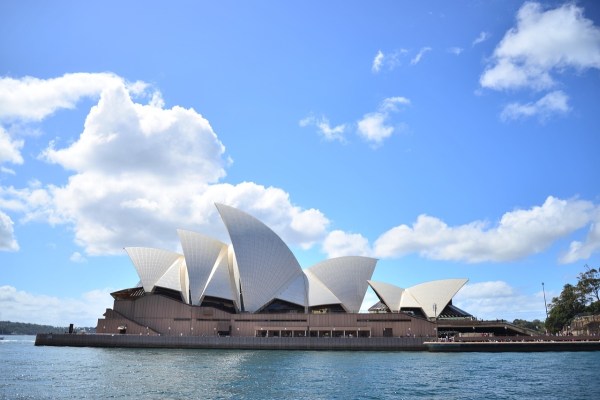Carlos Alberto Rodriguez Cocina
Director, Head of the Brussels Office of Telefónica
 So this is Christmas, and what have you done…
So this is Christmas, and what have you done…
Not an easy task to summarize 2014 in Brussels in a blog post. Beyond the hectic day to day and the rain (200 rainy days per year on average in Brussels Capital, Wikipedia dixit), a few highlights can definitely be extracted from 2014 that may make it a crucial turning point in the years to come. I will focus below on four of them: Institutional renewal in the EU; consolidation in the telco and cable sectors; competition policy in the digital era and privacy related developments. Most significantly, it all happened in a year where Telefonica was celebrating its 25th anniversary in the capital of the EU!.
A year high in politics but low in digital policy
While the impact of the Luxleaks scandal it is still to be gauged as these lines are written, 2014 will be surely recalled in Brussels as the year of the spitzenkandidaten. This year has seen for the first time a process of institutional renewal based on the provisions of the Lisbon Treaty, successfully leading to the attribution of the Commission’s Presidency to Mr. Jean Claude Juncker, the candidate that emerged as winner of the Parliament elections held in May22-25. In the desperate search for bridging the democracy gap that exacerbates the disaffection of the EU citizens with the institutions, some excitement has been brought for the first time to European elections with candidates debating on TV and campaigning at the national level. Not enough to increase the turn out though, still a meager 43%.
Against the naysayers that were foreseeing a rise of the discontent and euro sceptic that would make the Parliament ungovernable, we have seen the pragmatism of a sort of grand coalition among EPP, Socialists and Liberals that ensures stability and a starting point closer than ever between Parliament and Commission in terms of developing the European agenda moving forward. Mr. Juncker and Mr. Schulz, that remains as the President of the European Parliament, will be a key axis in that regard. At the Council, enlargement has become a full reality beyond the rotating presidencies with the designation of Poland’s former Prime Minister Mr. Tusk as President of the European Council. All these developments at the political level reached their climax with the configuration of the new European Commission, the most political Commission that can be recalled with a high profile College including 9 former Prime Ministers or Deputy Prime Ministers, 19 former Ministers, 7 returning Commissioners and 8 former Members of the European Parliament.
Sadly, against this limelight at the political level, 2014 has been disappointing in terms of real policy developments at least in the digital field. The most relevant dossiers such as the Telecoms Single Market (with the hyper contentious issues of Net Neutrality and Roaming on it) and the General Data Protection Regulation have made little progress during the Greek and Italian Presidencies lingering on in their own complexity and the sluggish pace of the regulatory process in Brussels. Same is true for other important pieces of legislation such as the NIS Directive or the Payment Services Directive. Some achievements can be signaled such as the Regulation to reduce the costs of broadband roll out or the new Recommendation on Relevant Markets but their relevance pales in comparison with the previous mentioned pending legislation.
One may expect that having Jean Claude Juncker identifying the Digital Single Market as one of his top political priorities and creating a Vice President position to steer and coordinate an strategy in that regard will lead to the necessary push to make the much needed progress in order to regain relevance for the European digital sector.
Ready, set, go for consolidation
Other than the institutional renewal, 2014 will be remembered in the telco and cable industries as the year where the process of consolidation of the sector really started with a leading role for Telefonica in the operations to acquire E-Plus (KPN’s subsidiary in Germany) and to sell O2 Ireland to Hutchinson Whampoa reducing the number of players in the mobile market from 4 to three in both countries. The relevance of Brussels’ green light to these operations is significant to the extent that it shows how Europe may be starting to turn the corner of a model that promoted market entry and penetration of broadband based on a static view of the market focusing on decreasing prices for consumers and a perfectly competitive market structure. There seems to be now some understanding of how consolidation (even if at national market level) is needed for European telcos to create efficiencies of scale, allowing them to compete more effectively and make the needed investments in infrastructure and technology. There is still plenty of room however for an improved approach on competition policy to this process on the areas of market definition or on the consideration of the benefits associated to dynamic efficiencies. The race in any case is on with a myriad of operations leading towards the combination of mobile and fixed assets (Liberty Global/Ziggo; Orange/Jazztel; Vodafone/Ono)
Competition policy apt for the digital world?
Some other of the most relevant developments of 2014 have taken place also in the competition policy domain with the decision from the European Commission to reopen Google’s antitrust investigation on its search engine business and the new inquiry opened on the Android mobile operating system. More than the focus on a particular company (also targeted by a resolution from the European Parliament calling for the unbundling of the search engine business) the interest of these cases relies on whether the Commission has enough resources on its toolbox to address the growing positions of dominance that are appearing at different layers of the Internet value chain.
Swift and unconditional approval of the 19 bn US$ acquisition of WhatsApp by Facebook by DG COMP on October, seems to suggest that this is not the case. Current Competition rules and economics depend heavily on the presence of prices in the relevant markets. Products are, however, increasingly being offered in exchange for customers’ attention and information instead of money. Competition authorities are therefore confronted with fundamental questions and challenges about their role and efficacy in these markets and with the fact that many of the standard antitrust tools are difficult or impossible to use in the presence of zero price markets. Competition rules can no longer afford to ignore the realities of the new marketplaces. Modernizing traditional competition principles and tools to address zero-price markets becomes absolutely necessary.
Forgotten Continent
On 13th May, the European Court of Justice (ECJ) adopted a landmark decision addressing a preliminary ruling submitted by the Spanish High Court on the interpretation of EU Data Protection law in a case opposing Google to the Spanish Data Protection Agency. The ECJ ruled that Google can be asked to remove entries in its Internet search engine that violate data protection rules. The Court considers that the “Fundamental Right to privacy and protection of personal data prevails -as a general rule- over the economic interest of the search engine and over the legitimate interest of Internet users wanting to access that information” unless the claimant has public relevance and access to information is justified by the public interest. The ruling has far reaching implications for search engines as it defines the conditions for the Right to be Forgotten, which will have to be incorporated within the future General Data Protection Regulation.
In summary
New political landscape, dynamism in the market, need to adapt policy frameworks to convergence and the realities of the digital ecosystem, the quest for higher levels of digital trust and security are all coming together and promising an exciting 2015 where we should see even more…







